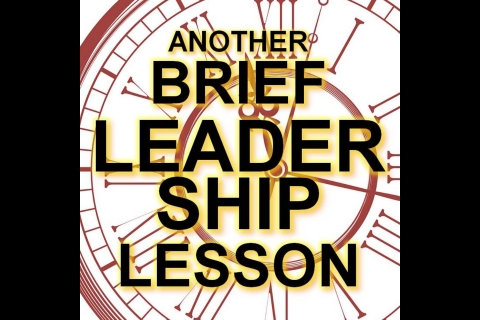Too many change journeys start at an ending. They are about leaving the current situation: a relationship, a job, a career, a shifting market, an outmoded product line or production process.
This post looks at “just leaving” at the personal level. What surprised me in writing it is how many parallels exist at the organizational level. Next week’s entry will address organizations “just leaving.”
As I’ve often posted before, change does require letting go; there is stopping and releasing some of the old to make room for the new. The challenge is this… Many roads might lead you away from where you are. But if you don’t know where you are going, which is the right one to take?
Sometimes it is important to leave before knowing your destination. For whatever reason, the situation is untenable: an abusive partner or boss; bullying from co-workers or classmates that cannot be stopped. Sometimes the choice isn’t yours: a layoff or termination, a divorce announced, a career choice no longer in demand.
When this happens, find the nearest safe way-station in your journey. This may be physical: a shelter, a family member’s home; I have one friend who–upon being laid off–set up “office” in a corner of the local Starbucks the next day; she was there five days a week as she prepared for her journey.
Your situation may require an economic way-station: finding a new job, finding new clients so you can fly solo, going to work for a temp agency.
I have been let go from my job before; I have been dumped by a long-term partner in a relationship before. It isn’t easy! As I reflect back, I remember the counsel of one of my mentors:
Don’t confuse the present with the total. It is a moment, the one you are in now. But in another moment there will be a different present. Each present is real. But none is forever.
Find your way-station. Then use it as the launching pad for your change journey. Know it is not forever.
If circumstances allow, don’t leave until you are prepared. As Phil Cousineau (“The Art of Pilgrimage”) writes, “Being ready mentally, spiritually, and physically makes us lighter on our feet, more adroit at making decisions, and perhaps even helps keep chaos at bay.”
For me, being prepared requires several things. It requires knowing your destination, and knowing it in your heart and gut, not just your head; it means creating your change story. Being prepared means planning the journey once you know the destination. It will most likely be long, and arduous. While you can plan some things, other things cannot be anticipated. How will you know that you are making progress? What milestones will you be looking for? Being prepared means doing what is required mentally, spiritually, and physically so that you can face the challenges–expected and unexpected–that you will face. It means doing whatever you can to lighten your burden as you step out on the road. Being prepared means having the belief in yourself–and in those people and things that will anchor you on your journey–so that you have the courage to take that first step, and then the next, and the next, without turning back.
Every change, whether it be individual, family, organizational, or societal, requires different preparations. Yet if you know the patterns that lie beneath those change journeys they are remarkably consistent. Being prepared means learning the patterns, and how to navigate them.
What do you do to prepare for change? What advice would you give others? Comment below.





